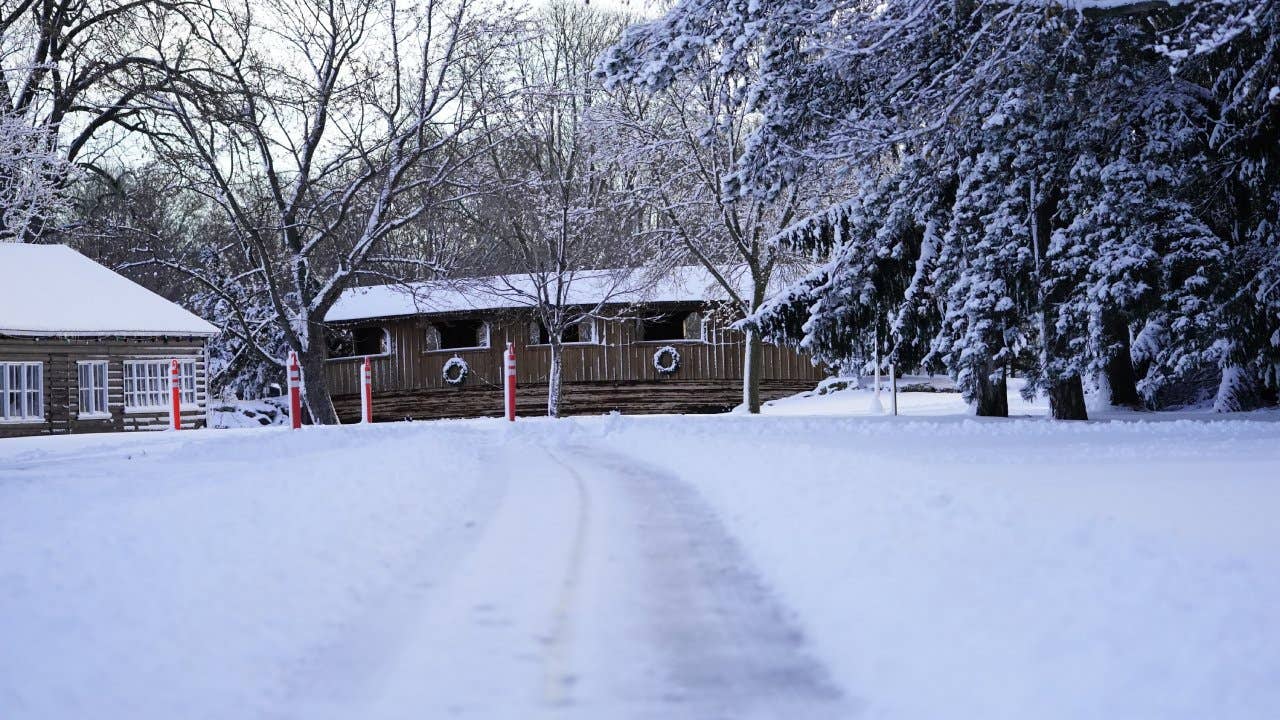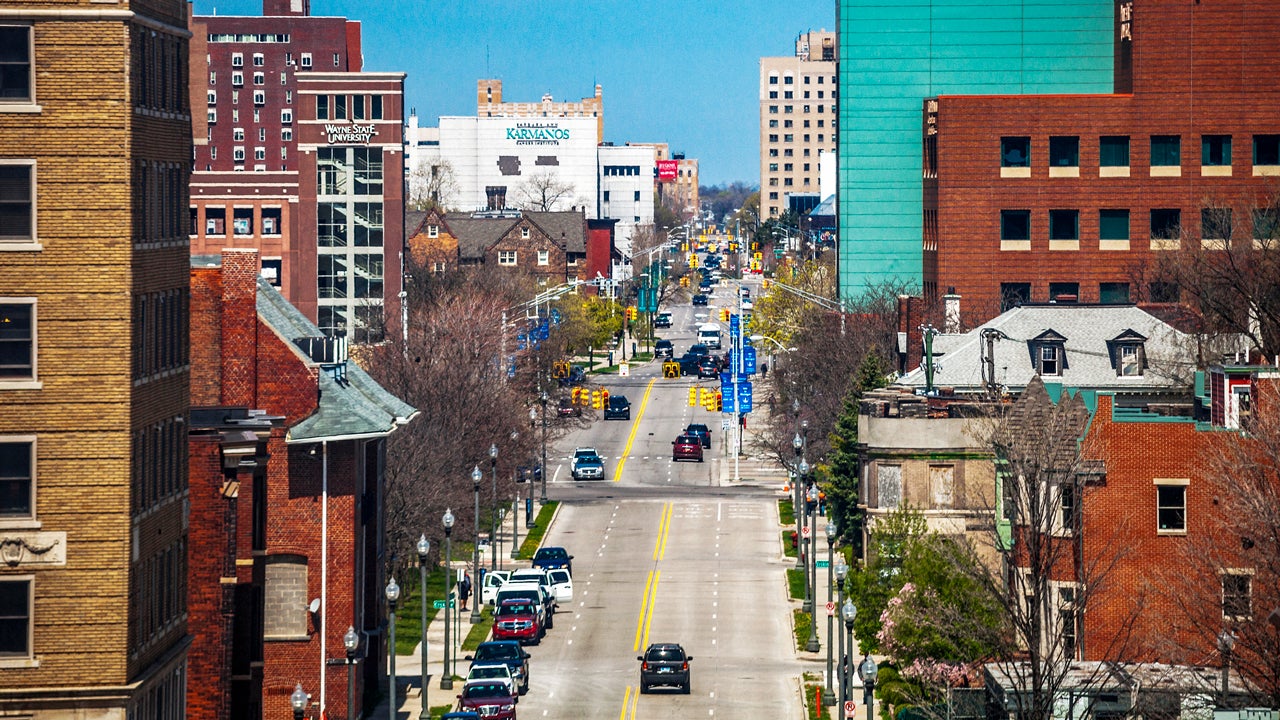Buying a house in Wisconsin: A how-to

Whether you’re looking to do the Lambeau Leap in Green Bay or raise a toast to Oktoberfest along the mighty Mississippi in La Crosse, living in Wisconsin offers a celebration every day of the year. Buying a house here, though, might not feel like much of a party right now. Data from the Wisconsin Realtors Association shows that a combination of falling housing inventory and rising mortgage rates is creating plenty of affordability challenges for prospective buyers in the Badger State.
The uncertain economy might be leading you to think about a big question: Should you buy a house now or wait? If you aren’t in a rush to relocate, sitting on the sidelines for a bit might be a decent choice. The hot seller’s market of the last few years will probably balance out, and may even tilt a bit towards buyers by the end of 2023, some real estate economists predict. So patience can pay dividends.
However, if you are confident that you’ll be in Wisconsin for the long haul, what’s the use in paying rent for another year? If you have great credit and enough cash for a down payment, you can find a home now and begin building equity.
Where should you look in Wisconsin? How much will you need to pay in closing costs? What can you do to eliminate some of the potential headaches of homebuying? Read on for everything you need to know to become a Badger State homeowner.
How to buy a house in Wisconsin
Decide where to live in Wisconsin
Big-city energy with Lake Michigan views in Milwaukee, college-town charm in Madison, summer-getaway vibes in Door County: There is a wide range of lifestyle choices when you’re thinking about buying a home in Wisconsin. In addition to looking at the list prices of properties, though, be sure to think about the price of everything else — food, utilities, transportation and other essentials. A cost of living calculator can help you figure how much money you’ll need to feel comfortable in different parts of the state. For example, the cost of living in Madison is around 15 percent higher than it is in Green Bay.
As you think about buying a home today, make sure you think about finding a place that will fit your needs well into the future. It doesn’t have to be a forever home, but you should aim to avoid moving again anytime soon. So, think about what the next five to 10 years holds in store. Will your family be growing? If so, consider the public school district. Or will you be retiring? Then, make sure you think about what you want to do with your time when you don’t have to work everyday.
Tips for buying a house in Wisconsin
Housing in Wisconsin is much more affordable than many other parts of the country. Data from the Wisconsin Realtors Association shows that the median sales price in the state is $270,000. However, if you’re looking for a much higher-priced luxury home, you’ll want to keep the state’s 2022 conforming loan limits in mind. Every Wisconsin county has the same maximum conventional loan amount of $647,200. If you need to borrow more than that, you’ll need to compare jumbo mortgage rates, which typically require higher credit scores and larger down payments.
Things to know about buying a house in Wisconsin
Property taxes: Wisconsin’s property tax rates are 1.63 percent of the home’s value, according to data from the Tax Foundation, which puts the state in the top 10 for highest tax rates in the country.
Dual agency: Dual agency is legal in Wisconsin, although you’ll likely see it referred to as “multiple representation without designated agency.” This might sound a bit confusing, but the premise is simple: The same agent can simultaneously represent you the buyer and the seller. There is also an arrangement called “multiple representation with designated agency,” which involves two agents at the same brokerage firm. Either way, it’s up to you to decide whether you’re okay with the potential conflict of interest. You can also reject multiple representation of any kind.
Seller’s disclosure: Sellers in Wisconsin are legally obligated to complete a disclosure form with their knowledge of any defects that can impact the property value or the health and safety of anyone living there. Read this report carefully — you must receive it within 10 days of signing a purchase and sale agreement — but don’t treat it as the final word: It’s important to hire a home inspector to take a closer look.
Closing costs: In addition to your down payment in Wisconsin, you’ll need to have enough cash to cover closing costs. In 2021, the average set of closing costs in the state added up to $3,459, according to ClosingCorp. However, you aren’t on the hook for that entire bill; the seller covers the real estate transfer taxes in Wisconsin – $3 for every $1,000 of value.
Attorneys: You are not legally required to hire a real estate attorney in Wisconsin. However, it’s smart to pay for a lawyer’s expertise to help guide you through the process. Buying a house involves a large amount of money, government taxes and confusing contract language, and the right lawyer can make a huge difference in eliminating stress.
Climate and weather considerations: When you’re preparing to buy a home, you need to also buy the right homeowners insurance to keep it protected. Depending on where you’re thinking about buying, you may need to pay an additional premium for flood insurance. A recent report from the First Street Foundation indicates that more than 273,000 properties in the Badger State have serious flooding risks.
How much house can I afford in Wisconsin?
When you’re trying to come up with a budget for buying in Wisconsin, start with a simple rule: Try to keep your monthly mortgage payment under 30 percent of your monthly income. And it’s important to recognize that your income will stretch further in different parts of the state. The most recent housing statistics from the Wisconsin Realtors Association show that the south-central part of the state has the highest median sales price – $321,000 – but you’ll find more affordable properties in the central region ($201,500) and the northeast ($242,000). No matter where you’re hoping to buy, you can use Bankrate’s new home calculator to set a maximum amount for your monthly mortgage payment.
Saving for a down payment in Wisconsin
The average down payment on a home in Wisconsin was $25,000 in the spring of 2022. However, you don’t need to stash that much cash in your bank account to buy property here. With great credit and a low debt-to-income ratio, you can move in with a down payment of just 3 percent of the purchase price. If that amount still feels overwhelming, don’t worry: There are quite a few first-time homebuyer programs from the Wisconsin Housing and Economic Development Authority (WHEDA) that can help you come up with the necessary funds. For example, the WHEDA’s Easy Close Down Payment Assistance option allows eligible borrowers to get a second 10-year mortgage for up to 6 percent of the purchase price. And if you qualify as a low-income borrower, the WHEDA’s Capital Access DPA option offers a second mortgage with a zero percent interest rate.
Get preapproved for a mortgage
Whether you’re trying to buy in Butternut, Beloit or anywhere in between, there is one common piece you’ll need anywhere in the Badger State: A preapproval letter, indicating a lender’s agreed in principal to give you a mortgage. Any seller is going to want to know that you’ve put in the initial work to have a lender look over your finances. Gather all the information you’ll need to share – pay stubs, tax returns, bank account information and other supporting documentation about your income – and be ready to undergo a credit check to get preapproved.
Find the best lender
Getting preapproved from one lender doesn’t mean you actually have to go through the full mortgage application process with that same financial institution. It’s smart to compare offers from multiple lenders in Wisconsin to find the best deal. Look at the APR to understand the true cost of the loan, and make sure you ask how quickly each lender will expect to close the deal.
Find a local real estate agent in Wisconsin
Now, it’s time to find a real estate agent who can help you navigate this confusing housing market. There aren’t enough homes available in Wisconsin – inventory in September declined by 25 percent versus the same time one year earlier – so your Realtor is essential to sifting through the limited inventory to find a place that fits your needs. If you’re buying a home from out of state, make sure you look for the letters CRP – Certified Relocation Professional – to find a real estate agent accustomed to helping other buyers move to the Badger State.
Start house hunting and make an offer
Now, your quest for a new home can officially begin. Go into the house-hunting phase with an open mind about how you can turn a house into your home. While it would be ideal to find a place that feels perfect, you’re probably going to want to make some changes of your own – updating the kitchen, tearing out old wallpaper or putting in new carpet, for example. When you find a place that feels like a great fit, your agent can work to get a sense of what kind of offer you need to craft to catch the seller’s attention. If the seller is highly motivated – perhaps they need to sell to relocate – you’ll have a bit more bargaining power. If you’re competing against other buyers, though, you’re going to need to figure out how to sweeten the deal. Your agent will help guide you through how to make the best offer.
Get a home inspection and an appraisal
After the seller accepts your offer, it’s time to do some investigative work about any potential issues lurking beneath the surface (or behind the walls). Pay for a home inspection to have a professional double check that the property doesn’t have any major problems that you’re going to need to deal with once you get the keys. Make sure that your offer is contingent upon the results of the home inspection, too. That way, if you uncover something that could cost you thousands of dollars, you can back out of the deal and get your earnest money deposit back.
In addition to an inspection, your lender will require a professional appraiser to assign a fair market value to the home. You want the appraisal to match the price you’ve agreed to pay; if it’s lower than your offer — what’s called an appraisal gap — you’ll either need to get the seller to agree to a lower price, or you will need to come up with the cash to make up the difference. Because the bank won’t lend you more than a certain percentage of the appraised value.
Conduct a final walk-through and close on your new Wisconsin home
You’re almost there. Before you head to your closing ceremony, ask your agent to help schedule a final walk-through of the property. This is your last chance to check out the condition of the home before you pay for it. There aren’t any professional inspectors involved in this stage, so it’s up to you to make sure you’re looking in the right areas for any potential problems.
Then, if everything looks good, it’s time to close on the house. You should receive a closing statement three days before the actual date, outlining all the closing costs you’re responsible for. Ask your attorney how you can pay – like a certified check or a cashier’s check – and make sure your wrist is limbered up: You’re going to be signing a small mountain of documents. Now, the keys are yours, and it’s time to create your own celebration. On, Wisconsin!
FAQs
-
If you’re buying a house in Wisconsin with a conventional mortgage, you’ll need a credit score of 620 or higher. If you’re planning to use the Wisconsin Housing and Economic Development Authority’s WHEDA Advantage FHA program, you’ll need at least a 640 credit score. Keep in mind that a much higher credit score – 740 and above – will help you secure the most competitive rates for a mortgage in Wisconsin.
-
Conventional loans typically require a down payment that equals 20 percent of the purchase price, and FHA-backed loans require a minimum of 3.5 percent down payment. For reference, the average down payment on a new house in Wisconsin in the spring of 2022 was $25,000.
-
There isn’t any kind of legal requirement when it comes to how much earnest money to put down in Wisconsin, but most sellers will want to see at least 1 percent of the purchase price. If you’re competing against other buyers, it’s wise to consider upping your earnest money deposit to show that you’re serious about the deal. However, you want to make sure that your contract includes a contingency to get that cash back if the sale falls through.
Why we ask for feedback Your feedback helps us improve our content and services. It takes less than a minute to complete.
Your responses are anonymous and will only be used for improving our website.






